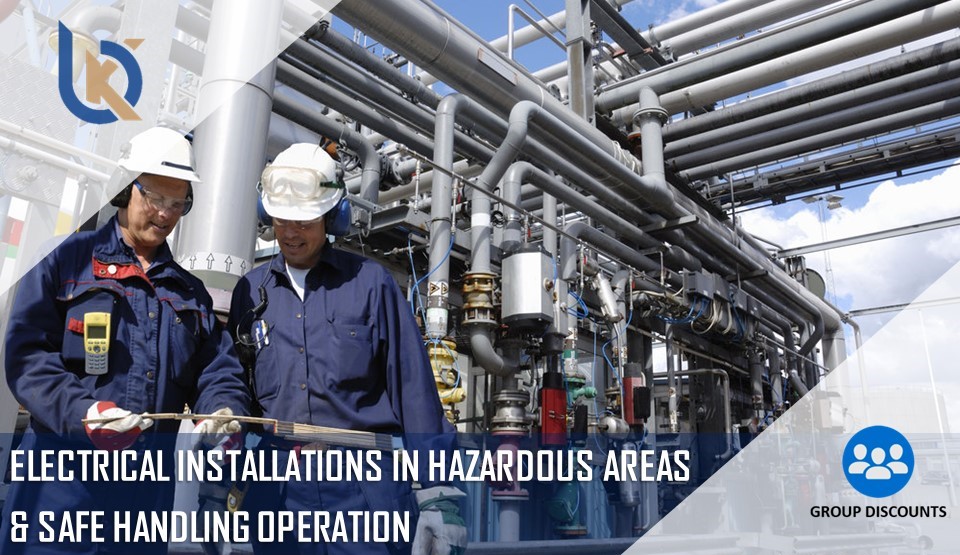| Training Code | Date | Duration | Venue | Fees |
|---|---|---|---|---|
| Keep following, we are updating our training schedules. | ||||

This course provides participants with an insight into the hazards involved in using electrical equipment in potentially explosive surroundings. This highly beneficial training course is designed to provide you with the skills to understand how electrical systems are installed, maintained and operated in industrial process plants in heavy industries, and why it is essential to ensure that measures are taken to ensure the safety of any equipment specifically in hazardous areas.
Why is this “Installation, Maintenance and Safety of Electrical Equipment in Hazardous Areas” course so essential especially to those in the electrical industry? Explosion-proof system installations can be expensive to design, install and operate, but even more expensive to manage if things go wrong.
Maintaining solid and fool-proof standards can significantly reduce the latter costs, while also maintaining the safety of the facility and its inhabitants. This course explains the terminology associated with the installation and maintenance of equipment in hazardous areas, area classification, selection of explosion-protected electrical apparatus, and describing how protection is achieved and maintained in line with international requirements.
This course is design for the following personal:
On successful completion of this training course, BK’s Certificate with eligible Continuing Professional Education credits (CPE), will be awarded to the delegates , one CPE credit is granted per 50 minutes of attendance.